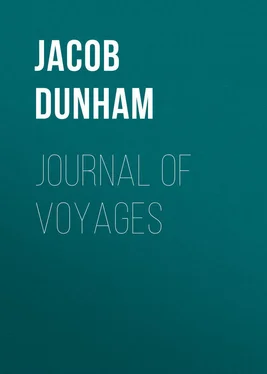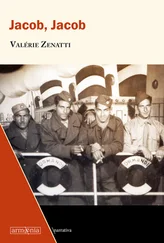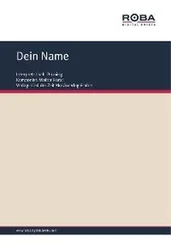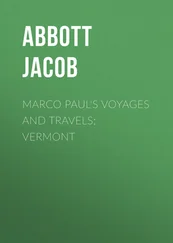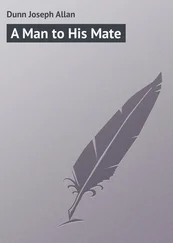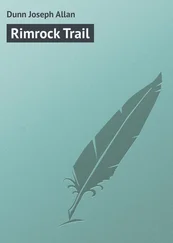Jacob Dunham - Journal of Voyages
Здесь есть возможность читать онлайн «Jacob Dunham - Journal of Voyages» — ознакомительный отрывок электронной книги совершенно бесплатно, а после прочтения отрывка купить полную версию. В некоторых случаях можно слушать аудио, скачать через торрент в формате fb2 и присутствует краткое содержание. Жанр: foreign_antique, foreign_prose, на английском языке. Описание произведения, (предисловие) а так же отзывы посетителей доступны на портале библиотеки ЛибКат.
- Название:Journal of Voyages
- Автор:
- Жанр:
- Год:неизвестен
- ISBN:нет данных
- Рейтинг книги:3 / 5. Голосов: 1
-
Избранное:Добавить в избранное
- Отзывы:
-
Ваша оценка:
- 60
- 1
- 2
- 3
- 4
- 5
Journal of Voyages: краткое содержание, описание и аннотация
Предлагаем к чтению аннотацию, описание, краткое содержание или предисловие (зависит от того, что написал сам автор книги «Journal of Voyages»). Если вы не нашли необходимую информацию о книге — напишите в комментариях, мы постараемся отыскать её.
Journal of Voyages — читать онлайн ознакомительный отрывок
Ниже представлен текст книги, разбитый по страницам. Система сохранения места последней прочитанной страницы, позволяет с удобством читать онлайн бесплатно книгу «Journal of Voyages», без необходимости каждый раз заново искать на чём Вы остановились. Поставьте закладку, и сможете в любой момент перейти на страницу, на которой закончили чтение.
Интервал:
Закладка:
The king of the Musquito Indians claims the sea-coast of that country from the False Cape, lat. 15° 14' N. to Port Boro Toro, lat. 9° 29' N. The government of Old Spain likewise claimed it, but never had been able to dispossess the Indians. The sea-board of this country is very level, interspersed with lakes, rivers and creeks. From May until November the country is visited with heavy showers of rain. In many places I have from time to time walked in water some inches deep to go from one house to another. The Indian towns are mostly built some distance up the rivers or creeks, to secure them from any attacks from the sea-board. They have no roads inland, their whole travel being in canoes, by which means they can visit the different tribes, hauling them across narrow necks of land that separate one lake or river from another.
The Spanish government, under an old blockading decree had declared that any person found trading with these Indians, if captured, should lose his cargo by confiscation, and be sent to the mines for life. The government of Spain likewise claimed three small islands near the Musquito Shore, viz: Old Providence, lying in lat. 13° 27' N. long. 80° 39' W. This island I found inhabited by about thirty families of free people of different nations and colors, and from five to thirty slaves to every free person in the island. St. Andreas, lying in lat. 12° 33' N. long. 81° W. It contains about seventy-five families of free people, and about eight hundred slaves; it was lately the residence of a Spanish Governor named Gonzales. This place had a small fort, garrisoned with about thirty soldiers. I shall hereafter give the reader a further description of the island, related to me by Captain Mitchell, commonly called Mitchell the Pirate. 1 1 The only account I have ever read of Mitchell is, that he was a partner with Lafitte, the Pirate, when they took possession of Baratara, where they carried their prizes. They kept possession of the place for some considerable time, bidding defiance to the authorities on that coast. Governor Claibourne, of Louisiana, afterwards issued a proclamation, offering these pirates a free pardon on condition that they would join the army then under command of General Jackson, for the defence of New Orleans. They accepted of the Governor's terms, repaired to that place with all their men, and put themselves under the command of the General, who placed them in the hottest part of the battle, where they fought in the most gallant manner. Lafitte and Mitchell both held commissions under the government of the Republic of Columbia at this time.
Great Corn Island lays in lat. 12° 19' N. long. 82° 11' W. about forty miles from the main land. Little Corn Island, lying about ten miles from the great one, is inhabited, and produces large quantities of cocoa nuts and wild fruits.
The staple produce of the above named island is cotton. The soil is fertile and produces plantains, yams, sweet potatoes, and Tropical fruits in abundance. The inhabitants raise plenty of hogs and poultry, which they fatten on cocoa nuts, the oil from which, while fresh, is equal to lard for cooking fish, &c. and after it becomes rancid burns well in lamps.
About the first of January, 1816, I made a contract with the Messrs. Cotheal & Hoff and Mr. A. S. Hallett, merchants of New-York, to take charge of a small sloop called the Biddle, of thirty-two tons burthen. I was to proceed to Musquito Shore, land at the island of Old Providence, (if I saw no suspicious looking vessels in the harbor;) and open a trade with the Indians for the purchase of tortoise shell, which was very valuable at this time; these Indians furnish large quantities of that article. I likewise had orders to exchange my goods for hides, deer-skins, cochineal, gum elastic or India rubber, gum copal, cotton, fustic, sarsaparilla, &c.
I took on board an assorted cargo, calculated for a barter trade. As I was totally unacquainted with the trade, this voyage was considered an experimental trip. On my arrival the inhabitants informed me that they had not seen the American flag flying there for the last fourteen years.
I could not procure any correct charts of that coast. I found many shoals that never had made their appearance on any chart, so little had these seas been surveyed. I suppose young mariners have less difficulty in that respect now, as Queen Victoria has become god-mother to the young king of Musquito Shore, and taken him under her parental care, to assist him in robbing his neighbors' territories.
I will here give the reader a short description of the country, the undertaking, and some account of the disasters which befell me in the prosecution of the voyage. Having loaded my little sloop, (about the size of a clam boat,) I soon shipped a crew, which consisted of a North River captain, who had never been out of the sight of land, to act as my mate; and two old broken-down sailors, one acting as seaman and the other as cook. We sailed about the first of February, with a fair wind, and made our passage in twenty-two days to the Island of Old Providence, where we hoisted our flag for a pilot. I soon discovered a fishing canoe, having one white man and three or four negroes on board, who volunteered to pilot us into the harbor. I inquired of the white man, whose name was John Taylor, one of the largest planters in the island, for a Mr. Hoy, to whom I had a letter of introduction. Mr. Taylor replied that Mr. Hoy was dead, that he was his father-in-law. He took the letter, promised me friendly assistance, and piloted my vessel into the harbor. The inhabitants soon came on board and commenced a brisk trade with me. Previous to leaving New-York, I was advised not to enter the harbor of Old Providence if I saw any vessel looking like a privateer or man-of-war in sight of the place. In the afternoon I kept a good look out with my spy-glass, until near sun-set, when I discovered a schooner beating up under the lee of the island. I immediately applied to my new friend, Taylor, to pilot me out of the harbor, promising him to return again in a few days, which he utterly refused. He told me that the vessel in sight was a privateer belonging to Captain Mitchell, who commanded her – that Captain M. kept his (Taylor's) daughter as a wife, and that Mitchell was a clever fellow and would not molest me. As the channel of the harbor was narrow and difficult to pass through, I decided to remain at anchor rather than run the risk of getting the vessel on shore, considering it was best to keep quiet and trust to fortune. I felt somewhat agitated as the privateer approached the land, it being a dark night.
About 12 o'clock she anchored a short distance from us, when I was hailed from her, asking, "What sloop is that, and from whence come you?" I answered, "Sloop Biddle, from New-York." In a few moments a boat came alongside with the captain and eight men, all armed. I showed the captain my papers, and assured him my cargo was bona fide American property. He answered me, saying, "We shall see more about that to-morrow morning." He then left me and returned to his own vessel. Soon after I heard the report of a large cannon from the privateer, which was mounted on a circle, filled with chain and grape-shot, and pointed towards the shore, where it cut a decent road through the small trees. The next morning Captain Mitchell told me the gun was loaded full to the muzzle, and that when he loaded it he intended to fire into my vessel without hailing her, supposing she was Spanish, to whom he showed no quarter. On a second reflection he thought it best to hail the sloop before he fired. He said, "Had I fired into you, I should have cut your vessel all in pieces." He discharged the gun toward the shore as a signal to send a horse to convey him to Mr. John Taylor's, whom he called his father-in-law, as he kept his daughter Sarah as a wife.
Читать дальшеИнтервал:
Закладка:
Похожие книги на «Journal of Voyages»
Представляем Вашему вниманию похожие книги на «Journal of Voyages» списком для выбора. Мы отобрали схожую по названию и смыслу литературу в надежде предоставить читателям больше вариантов отыскать новые, интересные, ещё непрочитанные произведения.
Обсуждение, отзывы о книге «Journal of Voyages» и просто собственные мнения читателей. Оставьте ваши комментарии, напишите, что Вы думаете о произведении, его смысле или главных героях. Укажите что конкретно понравилось, а что нет, и почему Вы так считаете.
